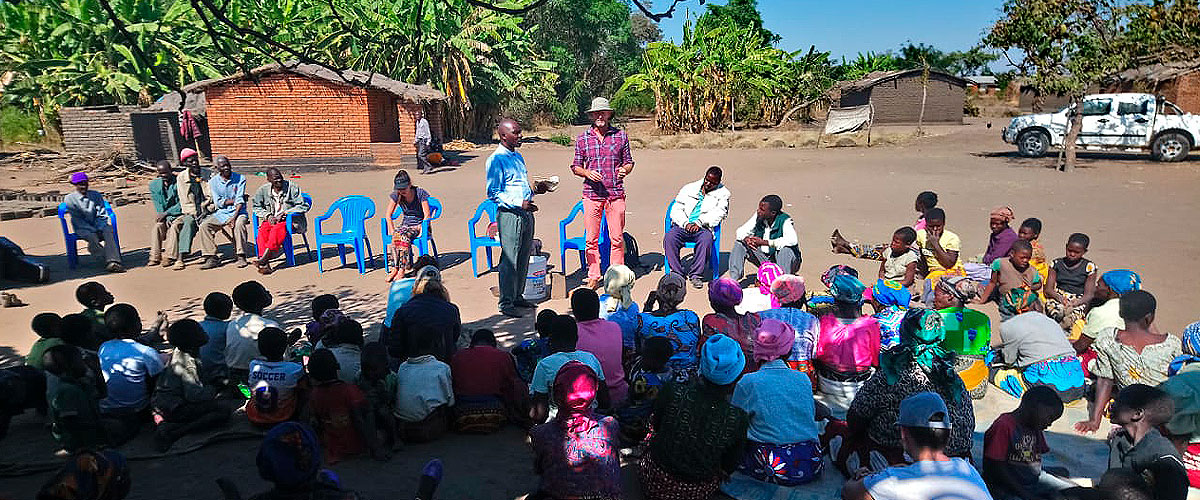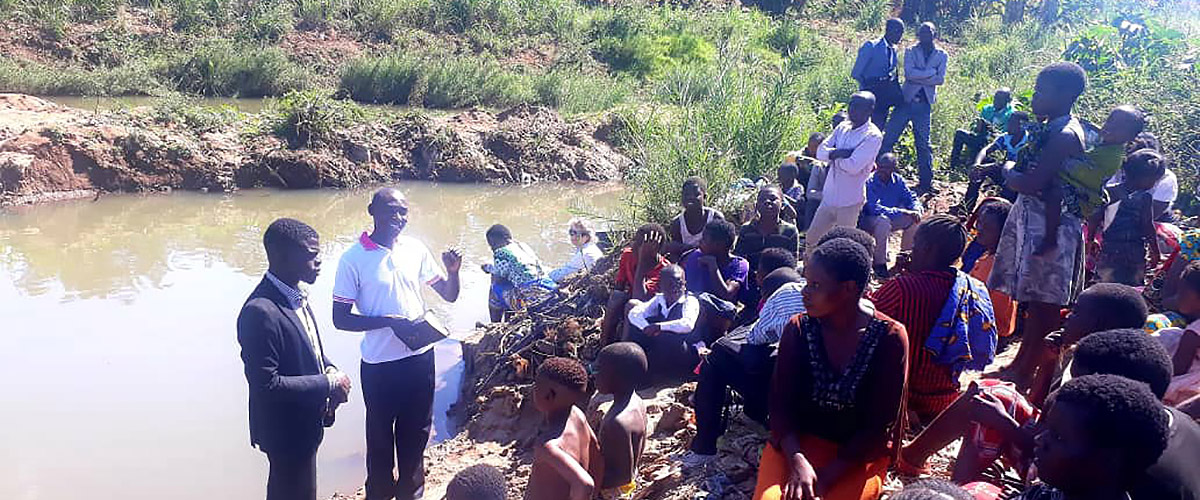When we obeyed God, packed up our home and moved to Malawi to facilitate partnering with Four12 there, we had no idea how deeply the cultural differences would impact our ministry. Scripture is clear that we should preach the gospel to all nations, and Jesus was insistent that every people group should hear it before the end comes (Mark 10:13). It follows that many more of us will be following the apostolic mandate to “go into all the world and preach the gospel to all creation.” (Mark 16:15, NIV)
Biblical Culture
Biblical culture should be held up as the model, as certain parts of each culture are corrupted by sin. So what have we learnt from the Word, the Spirit and our experiences that will help those going for short or long periods into another culture?
Below follows 7 of 15 lessons we have learned along the way:
-
Understand that relationship is key.
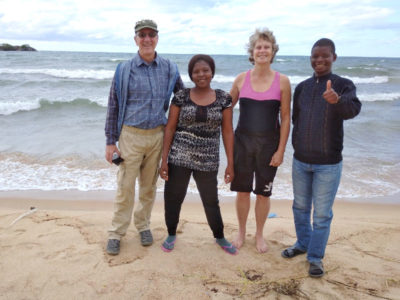
Deep heart connections are more important than anything you say or do. It takes time until you can really say, “These people are my friends.” Where the social and economic gap is as vast as ours has been, many people interact with you simply for financial gain. It takes time to discover the real motivation behind the ‘friendships’ or to change what was unhealthy into a biblical pattern. Jesus was often confronted by people’s needs (for salvation, healing, relational wholeness or food) and He responded to each one on an individual basis. The most common question we ask is, “What do you think or feel about this?” and then we listen.
-
Understand that the message of the gospel is restoring individuals into an intimate family relationship.
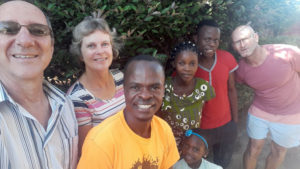 It’s the Father-heart of God. This is where intimate worship is restoring the presence of God. Those in Africa are realising that the relationship between us and Jesus is more important than rules and rituals. Grace is more important than judgement. The expression of this is found in Song of Songs; its passion and intimacy are foreign in a culture that sees marriage mainly as a contract. Biblical marriage and family life are bringing life to a people so ready for change. We had to throw aside our psychology-based bias and preach pure Bible for breakthrough in this area.
It’s the Father-heart of God. This is where intimate worship is restoring the presence of God. Those in Africa are realising that the relationship between us and Jesus is more important than rules and rituals. Grace is more important than judgement. The expression of this is found in Song of Songs; its passion and intimacy are foreign in a culture that sees marriage mainly as a contract. Biblical marriage and family life are bringing life to a people so ready for change. We had to throw aside our psychology-based bias and preach pure Bible for breakthrough in this area.
“It takes … time to change what was unhealthy, into a biblical pattern.”
-
Understand the need to ‘be all things to all men’ to win some.
1 Corinthians 19:22-23 says, “To the weak I became weak, to win the weak. I have become all things to all people so that by all possible means I might save some. I do all this for the sake of the gospel, that I may share in its blessings.” (NIV) When we first started ministering into poorer contexts (even in South Africa), we felt God say to live with the people and eat what they eat. Paul said, “You know how we lived among you.” (1Thessalonians 1:5, NIV), “because our gospel came to you not simply with words but also with power, with the Holy Spirit and deep conviction. You know how we lived among you for your sake.” The New Living Translation (NLT) says, “… and you know of our concern for you from the way we lived when we were with you.”
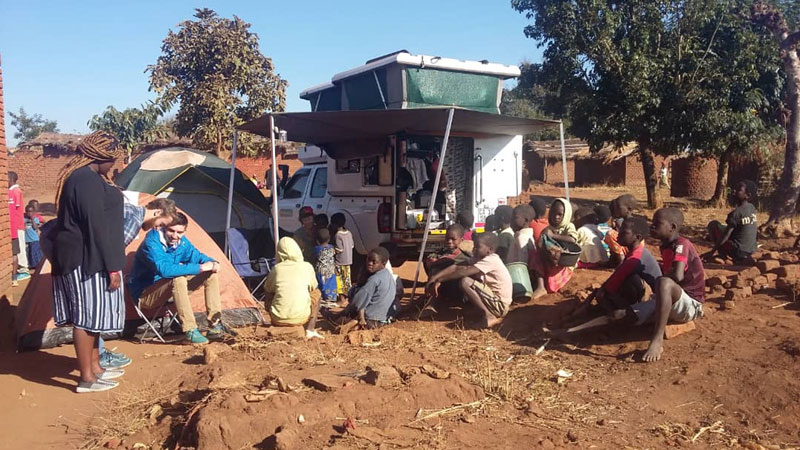
Living in the villages next to the pastor’s house or church building, eating simple food with our hands and being seated on the ground, has had a powerful impact on the people. For example, one old man watched as we (Lance and Sue) hugged and kissed as we met in the morning. The next day, as his wife knelt before him to bring his shaving water, he kissed her on the forehead. She was so surprised at this open display of affection, and so was the extended family! You will seldom achieve true friendship if you stay in a lodge, eat steak and pop in to preach. Living among the people is a sign of humility. Jesus humbled Himself to come from the throne of heaven and be born in a stable. Yes, you can eat dried fish and nsima (pap). Yes, you can wear a skirt or long pants to honour their modesty. Yes, you can use a long-drop toilet. The grace of God will sustain you.
“Even though we may see intense poverty (in the natural), we are called to alleviate spiritual poverty.”
-
Understand that our path is littered with ‘missionary’ and NGO failures.
These people and organisations have often come in with huge funding, providing food, housing and often church buildings, and left a wake of devastated hearts. In 2018, Andrew Selley taught on the dangers of the social gospel at the Four12 Conference in Cape Town, and we have certainly seen the evil of such practice in Africa. Even though we may see intense poverty (in the natural), we are called to alleviate spiritual poverty. We have personally seen the benefits of Jesus’ approach to the poor: to restore their dignity by seeing them as individuals and presenting them with Jesus’ forgiveness from sin and vision for the future. This has an incredible influence on their work ethic and their ability to provide food and education for their families. It helps to avoid calling yourself a missionary and not to allow the people to give you titles or call them by titles.
-
Understand that poverty limits partnership, leadership training and even church growth.
In a first-world context, leadership meetings or Four12 Equip times are simple: each person provides their own transport, finds a babysitter and is hosted or pays for their own food during training.
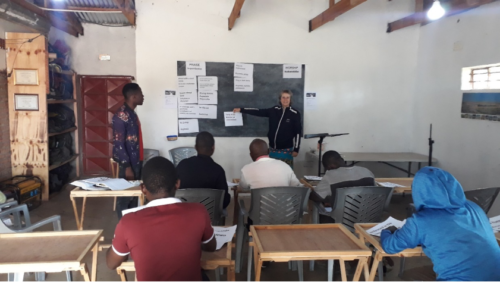 In Malawi, an agrarian, day-to-day economy, the leader first has to make sure his family has food while he is away – can his wife sell something at the market to feed the kids? While petrol/fuel costs around the world can be reasonably low and accessible to most, his transport will cost the equivalent of a few months’ income. With this in mind, he needs to save up for a year to afford some training. He arrives at the training time with a few sweet potatoes from his crop to add to the pot. This leaves the hosting team responsible for most of the food and his transport home! After two weeks at leadership training, he is transformed after encountering the presence of God, sufficient theology to formulate a good sermon, and simple leadership skills.
In Malawi, an agrarian, day-to-day economy, the leader first has to make sure his family has food while he is away – can his wife sell something at the market to feed the kids? While petrol/fuel costs around the world can be reasonably low and accessible to most, his transport will cost the equivalent of a few months’ income. With this in mind, he needs to save up for a year to afford some training. He arrives at the training time with a few sweet potatoes from his crop to add to the pot. This leaves the hosting team responsible for most of the food and his transport home! After two weeks at leadership training, he is transformed after encountering the presence of God, sufficient theology to formulate a good sermon, and simple leadership skills.
We have found we need to travel more often to the outlying areas for hub training. A 300km trip takes most of the day on roads crowded with bicycles and animals – always an adventure! When we get there, money must be provided, markets scoured and goats or chickens slaughtered for food. The people are hungry for the Word and the Holy Spirit. After three such training times in the South, we found that most of the churches had doubled or tripled in size.
“Jesus’ love is the answer.”
-
Understand how deep the level of rejection is.
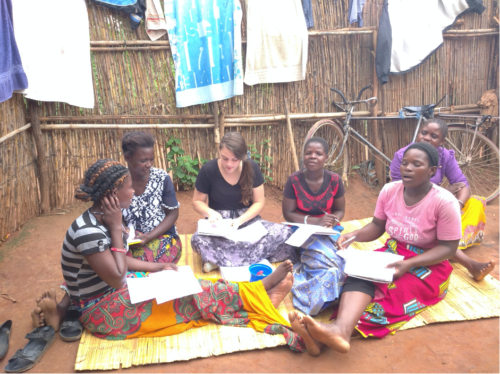 Jesus’ love is the answer. In every culture, we encounter people who have been rejected by parents or friends; but rejection is deeper in a world driven by poverty and racial stigma. In loving, we peel off layers of rejection; “I come from Africa, the dark continent”, “My skin is dark”, “I lack education”, “I left school at 16 to marry a man I did not love so my parents could save my food money”, “I was born in the third poorest nation in the world: we only survive on grants from wealthy nations and NGOs”.
Jesus’ love is the answer. In every culture, we encounter people who have been rejected by parents or friends; but rejection is deeper in a world driven by poverty and racial stigma. In loving, we peel off layers of rejection; “I come from Africa, the dark continent”, “My skin is dark”, “I lack education”, “I left school at 16 to marry a man I did not love so my parents could save my food money”, “I was born in the third poorest nation in the world: we only survive on grants from wealthy nations and NGOs”.
As soon as we demonstrate that we will stay and love them no matter how they disappoint us, sin, push us away or ignore us, we demonstrate the unconditional love of God. It is from this point that healing begins. When a Christian leaves wealth and a healthy church to sit with women in the dust and make nsima, hug and tell stories to the children, pray with those who have malaria, and minister identity in Christ to a bunch of village teenagers, it speaks a thousand words of acceptance, even more so when a couple relocates permanently to love and know them!
-
Understand how communal culture is different from individualistic culture.
For example, we have many fruit trees in our walled garden. We plan what we will do with each harvest of fruit, including sharing it with our friends. However, children from the neighbourhood see the fruit as their property (including the unripe fruit) before we even begin harvesting. We also have people ask for leaves from the Custard Fruit Tree for Cancer treatment and visiting pastors who see no problem with stripping the Lemon Tree or picking leaves for relish from our vegetable garden. If you have a car, it belongs to the community, even if the driver doesn’t know how to look after it. Core individualistic values include planning, delayed gratification (wait for the fruit to get ripe so that the harvest is bigger) and responsibility for maintenance. We can certainly learn about sharing and respect from these cultures – it will shake your definition of hospitality!
In summary, together, we need to commit ourselves to getting to know each other better, establishing genuine friendships and building the family of God, despite cultural differences and lack of understanding.
Read about the final eight lessons learned in Malawi in ‘Ministering to Other Cultures – Part 2’.


